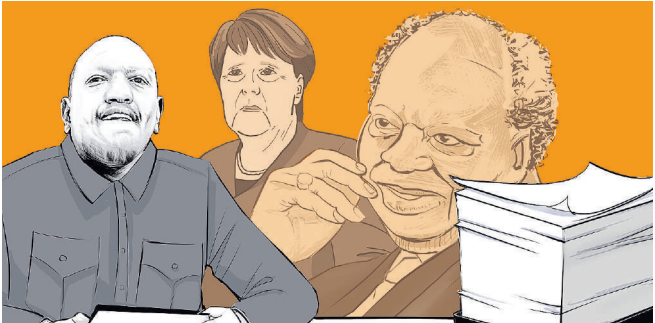

The election of a new German Chancellor, Friedrich Merz, just last week, set me thinking of the sad fate of a lady who once seemed guaranteed to be one of the iconic leaders of modern Europe: the former German Chancellor Angela Merkel, now living quietly in retirement.
As Germany has long been recognised as “the economic engine of Europe,” any political or economic directives or policies that a German chancellor comes up with, is not only of national relevance, but also of continental significance.
Merkel served as chancellor for 16 years (2005 to 2021), which is the second longest such term for any chancellor in German history.
In a vibrant democracy like Germany, you do not get to serve for that long, unless you are personally very popular and also have exceptional political skills.
Yet history has not been kind to Merkel, and two of her signature policies – which at the time they were rolled out seemed to be both morally robust and strategically far-sighted – have since been useful to those who wish to tarnish her hitherto gleaming reputation.
First of these was the policy of bringing Russia into ever closer economic engagement with Europe, by the expansion and entrenching of the existing undersea pipeline which supplied Russian gas to Germany: the now infamous Nord Stream gas pipeline.
The thinking behind this was sound enough: it had long been established geopolitical wisdom, that countries with extensive trade links, would not go to war against each other, or even act against the “rules-based international order”: a political and economic system that goes back to the late-1940s.
However, times had changed, and Merkel’s pro-Russian policy was one of the first casualties as the Russian army launched the full-scale invasion of Ukraine on February 24, 2022.
Someone forgot to tell the Russians that, given their close and highly profitable economic ties with Western Europe, they were not free to invade a smaller neighbouring country, just because they felt they were strong enough to do so.
Merkel’s other policy initiative which was considered to be a victory for German humanitarianism at the time (2015) but later proved to be equally disastrous, was that of allowing about one million mostly Syrian refugees to enter Germany and apply for political asylum.
Cynics, even back then, pointed out that the kind of Syrian who had made it all the way to Europe, was not likely to be an elderly peasant farmer or an illiterate goat herder, but rather young and well-educated.
Most such refugees usually have to pay someone (basically, a human trafficker, to get them to their desired destination, just like those poor misguided West Africans who end up dying either in the Sahara Desert, or in a leaky boat trying to cross the Mediterranean).
And so, the argument went, Germany was in effect receiving an infusion of young and educated men and women, of precisely the kind that it needed, given its own skills shortages, and the demographic challenges of an ageing population.
I don’t think any such cynics or critics, ever foresaw that this sudden and massive arrival of non-German-speaking foreigners, not all of whom easily integrated into German society, would lead to an upsurge in the popularity of the German far-right political extremists.
These far-right politicians, who preach an uncompromising opposition to mass immigration, and whose real agenda is a quest for racial purity, had long been completely marginalised in German politics, as they were considered to represent a possible return to Germany’s darkest days under Nazism.
So what has all this got to do with Kenya?
Well, with the unprecedented unpopularity of President William Ruto (at least as revealed in public debate forums) and the determination of his political rivals to make him a one-term president, one has to wonder what his legacy will be, irrespective of whether he serves for one term or two.
Kenyan presidents actually tend to experience the opposite of what happened to the German chancellor: once out of office, they tend to be remembered mostly for what they got right.
President Mwai Kibaki, for example, in the aftermath of the 2008 post-election violence, seemed doomed to be remembered as a president who only won his second term through a deeply controversial election, which took the nation to the brink of civil war.
Now he is most often spoken of as the great economic reformer who set the country on a path to rapid economic growth.
There are already signs that former President Uhuru Kenyatta is now viewed more positively than when he was president, or even when he was engaged in his failed campaign to have opposition leader Raila Odinga succeed him.
And his political backyard in Central, which contemptuously disregarded his advice in the last presidential election, now seems eager to listen to him.
So we have to wonder, even at this distance, how history will judge President Ruto: will his fate be that of Merkel, or that of Kibaki?
Muga is a columnist


![[PHOTOS] KPC signs a service legal agreement with KEBS](/_next/image?url=https%3A%2F%2Fcdn.radioafrica.digital%2Fimage%2F2025%2F07%2Fa63c369d-7d4d-4a8c-bef9-34dba4c6d536.jpg&w=3840&q=100)









